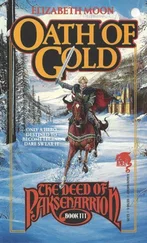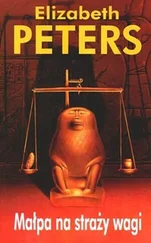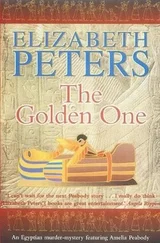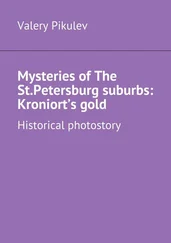“Found the sacristy,” John announced. “Or the off-beat local version of same. Not much there.” He tossed a bundle onto the floor. Dust billowed up in an evil-smelling cloud.
“God,” I said involuntarily. “It smells like a grave.”
“Mold. Let’s eschew suggestive similes, shall we, and say mold.” John nudged the bundle with his foot. “Curtains. They’re rotting and filthy—and moldy—but we’re in no position to be fastidious. It’s going to be a long, cold night.”
“No wine?”
“No wine.” He sat down next to me. I edged away.
“Now don’t tell me you are going to come all over prim propriety,” he jeered. “Bundling, I have been informed, is a thrifty old New England custom which ought equally to have applied in the frigid tundras of Minnesota.”
“It’s not unheard of,” I admitted, moving into the circle of his arm. “I’ll endeavor to overcome my qualms about doing it in a church. What’s a commandment or two compared to death by freezing?”
“Fornication,” said John precisely, “is not mentioned in the Ten Commandments.”
“That’s a relief.”
“In fact,” John went on, “if one analyzes the sexual regulations of the Old Testament, one finds that they are based on property rights rather than moral attitudes.”
“Is that right?” I pressed closer against the warmth of his body.
“Adultery is prohibited because a man’s wife belongs to him in the same sense as his horse and his ass and so on. The daughter belongs to the father, so sibling incest infringes on the old man’s territory.”
“But surely father-daughter relationships—”
“There’s no prohibition against that.” John added thoughtfully, “I checked.”
I started to laugh. “This is an incredible conversation. Would you consider me vulgar if I asked why you investigated that particular issue?”
“That is not only vulgar, it is repellent,” John said coldly. “Idle curiosity alone prompted my investigation. It’s my greatest weakness—but one never knows when a seemingly irrelevant bit of information may come in handy.”
“I’ve noticed that.”
He turned slightly and put his other arm around my shoulders, holding me close against him. His warm breath stirred my hair. After a moment he let out a long, tremulous sigh.
“God, I’m hungry,” he said.
John claimed he had not eaten since breakfast because he had been too busy playing bodyguard for me. I took that with a grain of salt, but I was moved by his plight. I was hungry, too.
“I don’t suppose you brought my backpack? Oh, you did—bless your heart.”
“I had no choice. It was attached to you like a misplaced pregnancy.” A tender and touching hope dawned on his face as he watched me rummage in the knapsack. “I could even eat that bulb.”
“No, you couldn’t. Daffodil bulbs are poisonous.”
“So they are. I’d forgot. Another example of seemingly useless information proving relevant.”
“Yes; one never knows when one might want to poison an acquaintance. Here.”
John studied the object dubiously. “What is it?”
“Gingerbread. Schmidt kept forcing it on me last night.”
“I loathe gingerbread. What’s that white on it?”
“I guess some of the tissue I wrapped—”
“Hand it over.”
I went on rummaging while he munched. His eyes widened as the pile of edibles mounted up. An apple, two-thirds of a fruit-and-nut chocolate bar (large size), more gingerbread, little packets of sugar (with pictures of Alpine scenes) and artificial sweetener, and two tea bags. I’m sure it was the tea that wrung an involuntary exclamation of admiration from John.
“O goddess! Lady of the Sycamores, Golden One, who gives food to the hungry and water to the thirsty—”
“It’s nothing,” I said modestly. “I thought I had…Oh, here it is. I’m afraid it’s a little stale, and some of the jelly seems to have oozed out…. If you can find a container, we might have a spot of tea.”
John surged to his feet. “There are a few broken flower pots in the sacristy. And God knows there is plenty of snow.”
I don’t think he got all the encrusted dirt out of the pots, but as he said philosophically, it gave a spurious look of strength to the tea. He was fascinated by my hoard.
“Are you clairvoyant, or do you always prepare for blizzards?”
“I always carry artificial sweetener. Not all restaurants have it.”
“Then why the sugar?”
“I can’t resist the pretty pictures on the packets. I’m making a collection.”
John nodded gravely. “Of course. And the apple—the chocolate—?”
“Doesn’t everybody carry things like that around?”
He dropped his head onto his raised knees, sputtering with helpless laughter.
“Have another piece of gingerbread,” I said hospitably.
Life never ceases to amaze me. In my wildest dreams or nightmares, I had never expected to spend Christmas Eve in an abandoned church with an unreformed and unrepentant thief, dining on stale gingerbread and muddy tea. And I certainly would not have expected to enjoy it.
We talked for hours, huddled in front of the little fire, wrapped in cobwebby curtains and sipping tepid tea. He kissed the crumbs from my lips and held me close, for warmth, but we didn’t dare lie down for fear we’d fall asleep and the fire would go out. It was as if two opposing armies had declared a temporary truce. He talked more easily than he had ever done, and I tried to avoid questions that would raise the barriers again. We talked about everything under the sun—even the weather.
“I’ve never seen anything like that moving wall of snow.”
“And you are from the wintry wastes of Minnesota.”
“Have you?”
“Once. That’s why the sight of it petrified me. It was in the so-called mountains of western Virginia.”
“What were you doing in Virginia?”
I slipped then, but instead of clamming up, he answered readily, “Visiting a friend. I do have a few, you know. I was only a few feet from the lodge—bringing in wood—when it hit, but for a few memorable moments I didn’t think I was going to make it back.”
And about abstruse academic subjects.
“Who is the Lady of the Sycamores?”
“Hathor, Egyptian goddess of love, beauty, and so on. I may have misquoted. My specialty is classics, not Egyptology.”
“Greats,” I said. “Isn’t that what you call it? You went down with a first in Greats?”
“Well, not exactly,” John said, amused. “It cannot be said that I went down from university, as the idiom has it; rather, I was pushed off the ladder of learning.”
“Far be it from me to ask why.”
“It wasn’t extortion or fraud, if that’s what you are implying. Just a little matter of a tutor arriving home before he was expected.”
“I’m sure there is an Old Testament parallel.”
“Oh, quite. Potiphar’s wife. I was very young and naïve. I didn’t take up a life of crime until after that,” John went on cheerfully. “Someday I must tell you about my first scam. I don’t believe I have ever equaled the sheer splendid lunacy of that concept. It didn’t come off, unfortunately, but I’m still immensely proud of it.”
And about his family.
“Is your mother’s name really Guinevere?”
“It really is.”
“I’d love to meet her.”
“You wouldn’t like her.” After another of those meaningful pauses in which he excelled, he added, “She wouldn’t like you either.”
But not about the gold of Troy.
We recited poetry and sang, to keep awake. I taught John all the words to Schmidt’s favorite Christmas carol, which he approved—“kitsch at its finest”—and he taught me the second part of the glorious duet in Bach’s Cantata 140, where the soprano’s “ mein Freund ist mein ” is echoed by the baritone’s “ und ich bin dein .” My voice had suddenly descended from soprano to tenor during my last year in high school, so I took the baritone part and John sang soprano, both of us shifting octaves with reckless abandon. John was an excellent musician; I wondered whether he knew that my most secret, unfulfilled ambition was to be able to sing. He was kind enough to refrain from critical comment and I sang away with happy incompetence, no longer bothered by the ghostly responses from the rafters. “My friend is mine—and I am thine.”
Читать дальше








